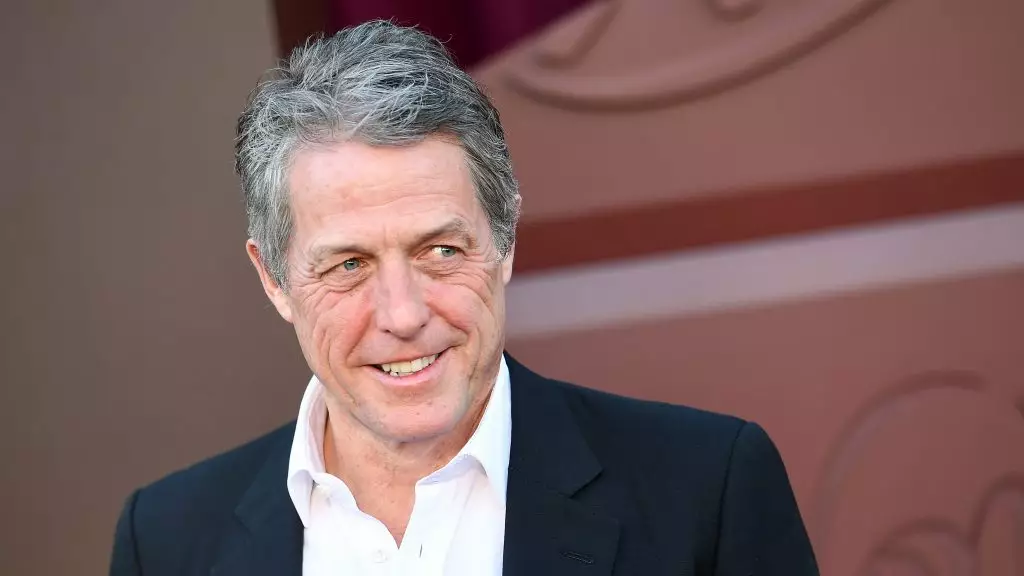Hugh Grant finds himself at a pivotal point in his career, reflecting on the transformative role that the Wachowski siblings played in revitalizing his acting trajectory. The Golden Globe-winning actor candidly recounts how a previous box-office disappointment, “Did You Hear About the Morgans?” left him feeling stranded in Hollywood. This period of uncertainty marked a significant turn in Grant’s career, which was subsequently rejuvenated by the ambitious and complex narrative structure of “Cloud Atlas” in 2012.
A Surprising Turn of Events
The transition from a leading man in romantic comedies to a character actor in a cerebral piece like “Cloud Atlas” may seem unconventional. However, for Grant, it was a welcomed challenge. The versatile acting opportunity presented to him—portraying six distinctive roles across the film’s interconnected narratives—allowed him to rediscover his passion for acting. He revealed to Vanity Fair that, despite his initial skepticism about being cast, he was grateful for the chance to explore various characters. Grant’s admission that he was brought on board due to international marketing strategies sheds light on the intricacies of Hollywood casting decisions. It highlights how sometimes even seasoned actors must grapple with the whims of marketable names rather than their true artistic potential.
The Complexity of “Cloud Atlas”
Based on David Mitchell’s 2004 novel, “Cloud Atlas” interweaves six stories situated in different time periods, ranging from 1849 to 2321. This ambitious narrative structure not only tests the bounds of storytelling but also provokes discussions about identity and character authenticity. Grant, embracing the complexity of his roles, showcases a range of antagonistic personas. While he found enjoyment in stepping out of his comfort zone, the film did not escape scrutiny for its controversial casting choices, particularly regarding white actors embodying East Asian characters. This criticism underscores the broader conversations about representation in film and the ethical implications of casting decisions.
Redefining His Identity as an Actor
Interestingly, Grant’s reflections on his career trajectory reveal a deep-seated desire to return to his roots in character-based performances. He reminisces about his earlier days in acting, characterized by comedic roles and a range of eccentric characters. His transition to leading romantic roles was arguably a deviation from what excited him about acting in the first place. Despite achieving significant success in these romantic leads, Grant yearns for depth and challenge in his roles, moving away from the clichés of the classic romantic hero.
The actor’s candid acknowledgment of the “mustache-twirling baddie” trope suggests a quest for depth in villainy. He emphasizes that characters must embody complexities beyond mere malevolence to resonate with audiences. Grant’s desire to portray multifaceted characters reveals an evolution in his artistic sensibilities, showcasing an understanding that the most engaging performances arise from the exploration of vulnerability and human fragility.
Grant’s journey of self-discovery also extends to his approach in selecting projects. Aware of the pitfalls of corporate influence in filmmaking, he expresses a commitment to working with directors who prioritize artistic integrity. By evaluating the nature of projects and the independence afforded to their creators, Grant aims to align himself with work that reflects his standards of quality. His direct inquiries to directors about their creative freedom reveal a discerning approach to his craft.
This pattern of critical evaluation may signify a more profound engagement with the industry’s dynamics. It conveys a desire not only to reclaim his status as a respected actor but also to advocate for valuable, artful cinema over commercial viability.
Ultimately, Hugh Grant’s reflections illuminate a pivotal renaissance in his career. As he navigates the complexities of character portrayal and selective project choices, he embodies a profound understanding of the multifaceted nature of acting. With a new focus on diverse and antagonistic roles, Grant is poised to challenge both himself and the audiences molding perceptions of what it means to be a leading man in modern cinema. Thus, while the road has been fraught with obstacles, it seems that Hugh Grant is embracing this chapter with renewed vigor and commitment towards delivering performances that resonate with depth and authenticity.

Leave a Reply